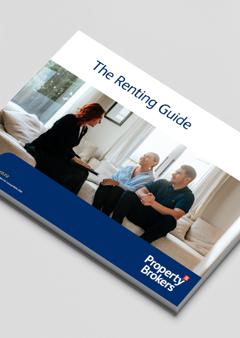Five Essential Tips for Tenants
Property Management

By continuing, you agree to our terms of use and privacy policy
Instructions on how to reset your password will be sent to the email below.
Your password reset link has been sent. Please check your inbox and follow the instructions provided.

Your property could unlock a year of financial freedom.
Property Management

Renting a home is a journey filled with excitement and opportunities. However, it can also bring its fair share of responsibilities and legalities - especially with recent changes in tenancy legislation. To help you navigate this landscape, we've compiled a list of the top five things every tenant should know about their tenancy in New Zealand. Whether you're a seasoned renter or just starting out, these insights will ensure you stay informed and prepared.
Your tenancy agreement isn't just another document to sign - it's a legally binding contract between you and your landlord. This agreement details everything from your rent amount and bond specifics to maintenance responsibilities and any special conditions unique to your rental. It's crucial to thoroughly read and understand this document before you sign. If anything is unclear, don't hesitate to ask questions or seek clarification from a legal advisor. Remember, both you and your landlord are obligated to adhere to these terms, so knowing them well is key to a smooth tenancy.
When you pay a bond, your landlord is legally required to lodge this deposit with Tenancy Services within 23 working days. This process is designed to protect your money, ensuring that it's returned to you at the end of your tenancy, assuming you meet all the terms of your agreement. The recent legislative update has streamlined the bond system, removing the need for signatures when lodging or topping up a bond. Be aware that manual lodgements via mail are no longer accepted, marking a significant shift towards digital efficiency.
Understanding the rules about rent payments and increases can save you a lot of stress. In New Zealand, landlords are permitted to raise the rent only once every 12 months and must provide at least 60 days' written notice. Always ensure your rent is paid on time, as outlined in your tenancy agreement. If you encounter financial difficulties, promptly communicating with your landlord or property manager is important. They are there to assist you in finding viable solutions to manage through tough times.
Maintenance isn't just a landlord's responsibility; tenants also play a critical role. While landlords must keep the property habitable and attend to necessary repairs, tenants should maintain cleanliness and report any issues as soon as they arise. Use the property-specific QR code to log any maintenance requests efficiently. This proactive approach helps prevent minor problems from becoming major issues and ensures the property remains a pleasant place for you to live.
Deciding to move out comes with its own set of rules. If you are in a periodic tenancy, you must provide at least 21 days' written notice. For those in fixed-term tenancies, the lease runs until the agreed end date unless you and your landlord mutually agree to terminate it earlier. When exiting, ensure the property is in good condition to facilitate a smooth bond refund process and avoid potential disputes.
By staying informed about these key aspects of your tenancy, you can enjoy a positive and stress-free renting experience. Remember, your Property Manager is a valuable resource - never hesitate to reach out if you have any questions or need assistance during your tenancy. Equip yourself with knowledge, and confidently take control of your rental journey!
From the top of the North through to the deep South, our salespeople are renowned for providing exceptional service because our clients deserve nothing less.
Managing thousands of rental properties throughout provincial New Zealand, our award-winning team saves you time and money, so you can make the most of yours.
With a team of over 850 strong in more than 88 locations throughout provincial New Zealand, a friendly Property Brokers branch is likely to never be too far from where you are.
